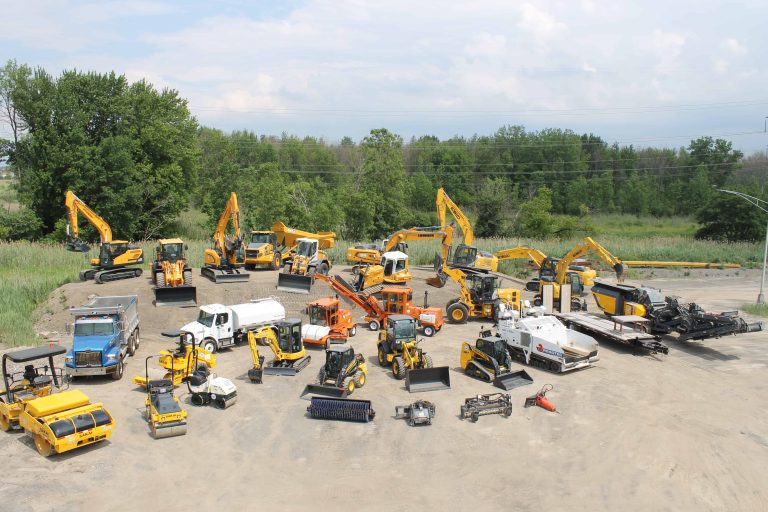Maximize Your Spending Plan by Understanding the Prices Connected With Building And Construction Tools Rentals
Recognizing the full range of prices associated with building and construction equipment leasings is critical for maximizing your budget plan. What approaches can be employed to efficiently take care of these prices and guarantee a much more reliable rental experience?
Overview of Rental Prices
When thinking about construction tools leasings, recognizing the connected costs is vital for effective budgeting and task planning. Rental prices can vary significantly based upon several aspects, including devices kind, duration of service, and location. The preliminary rental fee usually reflects the devices's market demand and its connected functional capabilities, affecting the overall cost.
In enhancement to the base rental rate, supplementary prices may develop, such as transport charges, gas surcharges, and maintenance fees. It is vital to represent these added expenses to precisely analyze the total expense of renting out tools. Additionally, the rental duration can influence pricing; longer leasings might receive reduced prices, while short-term services could incur greater day-to-day charges.

Break Down of Rental Rates
An extensive understanding of rental rates is vital for professionals and job managers aiming to enhance their budget plans. Rental prices for building tools commonly consist of several parts, including base prices, time-based charges, and usage fees.
Base rates are the core fees connected with the leasing of the tools, usually established by the type and size of the machinery. These rates can vary significantly, influenced by elements such as devices need, schedule, and regional market trends. Time-based charges, which might be daily, weekly, or monthly, offer to fit various job timelines and rental durations.
In addition, rental prices might include use charges, which apply when equipment is made use of beyond a defined limit, guaranteeing that the rental firm can represent wear and tear. Seasonal need changes can also influence rental rates, with peak building and construction periods usually commanding greater prices.
In addition, comprehending the rental firm's policies regarding upkeep and insurance coverage can provide more understanding into the general cost framework. By analyzing these parts, contractors can make educated choices, guaranteeing the option of rental equipment lines up with both task requirements and budget plan restraints.
Added Fees to Consider
Comprehending the ins and outs of added costs is crucial for professionals to manage their general leasing costs properly. Past the typical rental rates, various additional charges can considerably affect the overall cost of equipment rental. These fees frequently include delivery and pickup charges, which can differ based upon range and logistics entailed in delivering the tools to and from the work website.
Additionally, some rental business may impose fuel additional charges if the tools is returned with much less fuel than when rented. It is also necessary to understand possible cleansing charges, especially for customized devices that needs extensive maintenance after usage.

Thoroughly assessing the rental contract and clarifying these added charges upfront can aid specialists ensure and stay clear of unexpected prices that budget plans remain undamaged throughout the project lifecycle.
Upkeep and Repair Work Expenditures
Routine repair and maintenance expenses are usually ignored factors that can dramatically influence the general cost of building and construction equipment services. When renting devices, it is crucial to think about not just the rental charges yet also the prospective prices connected with maintaining the machinery in ideal operating problem.
Numerous rental firms include fundamental maintenance as part of the rental contract; nonetheless, much more considerable repair work or unforeseen breakdowns can lead to added expenses. It's necessary to review the rental agreement carefully to comprehend what maintenance solutions are covered and what duties fall on the renter.
Additionally, tools that is not properly maintained can lead to ineffectiveness at work website, possibly creating hold-ups and raising project costs. To reduce these risks, it is recommended to carry out routine evaluations and preserve open communication with the rental company relating to any type of problems that develop during usage.
Insurance Coverage and Obligation Expenses
Insurance coverage and liability costs are crucial components that can dramatically impact the overall expense of construction tools leasings (dozer rental). These costs make certain that both the rental firm and the client are protected from possible monetary losses occurring from accidents, damages, or theft throughout the rental duration

Furthermore, clients must recognize any type of deductibles or exemptions in the insurance coverage, as these can impact potential out-of-pocket costs. Comprehending the terms of any kind of insurance policy protection is important to avoid unexpected costs. Ultimately, budgeting for insurance coverage and liability costs can aid ensure a smoother rental experience and protect versus economic risks connected with building and construction projects.
Final Thought
In verdict, an extensive understanding of the expenses connected with construction equipment leasings is crucial for effective budget administration. By assessing rental prices, additional fees, maintenance heavy duty wood chipper costs, and insurance check my site coverage organizations, individuals and demands can lessen unforeseen expenses. This calculated strategy not just boosts cost-effectiveness yet additionally makes certain that tasks proceed efficiently and effectively. Eventually, notified decision-making relating to devices rentals contributes to the overall success of construction endeavors.
Rental prices can vary considerably based on several variables, including equipment kind, duration of rental, and area (construction equipment rentals). The rental duration can affect pricing; longer services may certify for reduced rates, while temporary leasings might sustain greater everyday charges
By performing complete research study and involving with credible rental business, contractors can successfully navigate the intricacies of rental pricing, eventually optimizing their monetary sources.
Beyond the typical rental rates, numerous additional costs can considerably influence the total expense of tools rental. Rental business often supply liability insurance coverage that covers injuries to 3rd parties or damages to residential or commercial property, while devices damages insurance coverage can cover the price of repairs or replacement if the leased devices is damaged.